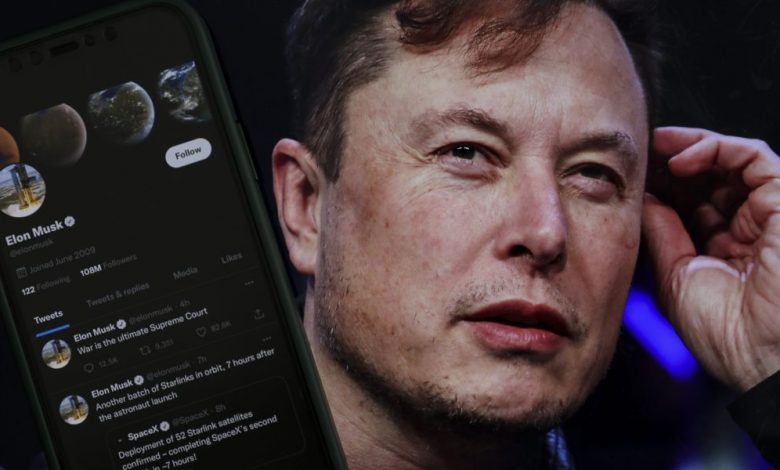A former member of the Twitter Trust and Safety Council says: “The platform is no longer safe”

New owner Elon Musk’s relaxation of Twitter’s content standards has made the service unsafe for users, according to a former member of the company’s group of external advisors on trust and security.
Eirliani Abdul Rahman, who resigned from the Twitter council earlier this month just before Musk disbanded the group, said so insider on Wednesday that “the platform is no longer secure”.
Since his $44 billion acquisition in October, Musk has made a number of changes to Twitter’s policies that he says are aimed at increasing free speech on the service. Additionally, he has reinstated previously suspended users, including far-right figures and those accused of being white supremacists, while firing employees responsible for overseeing the service.
At the same time, Twitter has seen an increase in hate speech, according to the Center for Countering Digital Hate and the Anti-Defamation League.
“I think we can now see the friction between what Musk believes he can do and the actual reality of content moderation,” said Abdul Rahman. She added that “content moderation is complex — you can’t fire the people who are working on it and just automate it.”
Earlier this month, Twitter dissolved its Confidence and Security Council, which included members of several civil and human rights organizations focused on hate speech Washington Posnot reported. The company emailed members saying the council is not the “best structure” for “external insight” into product and policy development.
After Musk’s takeover, Abdul Rahman said that “contact” with the Confidence and Security Council was stopped — even before the group was disbanded. Following her resignation, she said she had questions about how content moderation will be handled and whether it will be fully automated.
“It’s not the Twitter I signed up for,” Abdul Rahman said. “You can see that it’s very different now and represents a different way of looking at things.”
She then referenced Musk, adding, “I find it concerning that he’s making important decisions by doing polls and tweeting, ‘Should I do this?'”
That’s according to Ella Irwin, Twitter’s recently appointed head of trust and safety wealth that Twitter has released data over the past six weeks showing a significant decrease in hate speech across the service based on the number of times a hateful tweet is seen by users.
“We plan to continue to meet and seek advice from experts in the field, including members of the former Trust and Safety Council,” Irwin said. “We just prefer smaller, more focused meetings and conversations that allow us to be more focused on specific issues.”
Abdul Rahman also criticized Musk’s launch of Twitter Blue, Twitter’s new subscription service that includes a blue tick on each paying user’s profile. So far, the mark was only awarded to users whose identity was verified and who had at least a relatively high level of awareness.
Abdul Rahman said she understands the need for Twitter to make money, but Musk’s approach with Twitter Blue takes Twitter away from being a democratic platform because users who can afford it will have a “better experience” than those who can’t. She added that users shouldn’t be able to buy credibility.
Abdul Rahman isn’t the only one to criticize Musk’s actions since taking over Twitter. Yoel Roth, the former head of trust and safety at Twitter, resigned less than a month after Musk took over.
“We had a system of government,” he told the Wall Street Journal. “It was rule-based. We enforced our rules as written… We made it transparent and when that system of governance was scrapped you don’t need a trust and security chief anymore.”
Still, Abdul Rahman said there was nothing that matched Twitter’s original “democratic value” and was saddened by what appeared to be an exodus of users from the service.
“I don’t know what the future of Twitter is, but I don’t think it bodes well for Musk to continue as he is doing now,” Abdul Rahman said.
Musk didn’t immediately respond Assets Request for comments.
Our new weekly Impact Report newsletter explores how ESG news and trends are shaping the roles and responsibilities of today’s leaders. Subscribe here.



